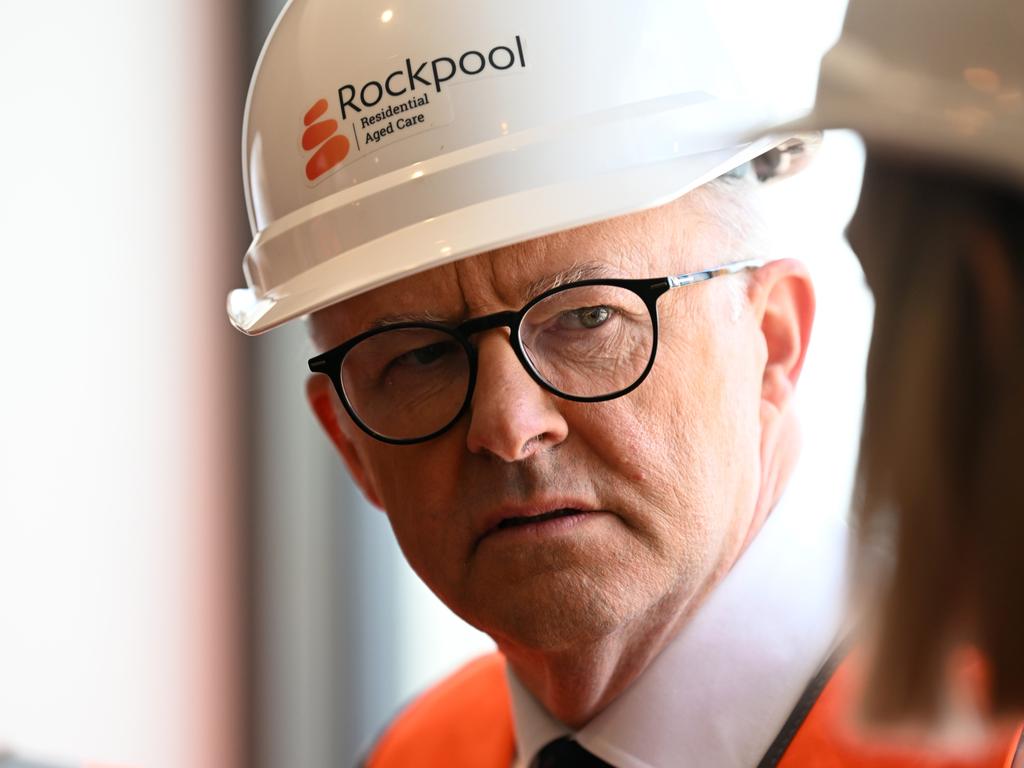Bosses say minimum wage increase to drive up prices
Employers have threatened to increase prices in response to the minimum wage for the lowest paid jumping by 5.2 per cent

Employers have threatened to increase prices in response to the minimum wage for the nation’s lowest paid jumping by 5.2 per cent but the Fair Work Commission has moved to mitigate the impact by granting lower rises to more than two million workers on higher award rates.
Anthony Albanese and the ACTU welcomed the $40-a-week rise in the minimum wage, but industry groups said the increase would add “fuel to the inflation fire”, jack up the costs of impacted businesses by $7.9bn and push some companies to the brink.
The new national minimum wage will be $812.60 a week, or $21.38 an hour, from July, with the commission finding the increase will “protect the real value of the wages of the lowest-paid workers”.
Modern award minimum wage rates above $869.60 a week will increase by 4.6 per cent and wage rates below $869.60 a week will be adjusted by $40 a week.
The commission delayed increases for workers in the aviation, tourism and hospitality sectors until October.
As the new Labor government had pushed for a 5.1 per cent rise for low-paid workers, Employment and Industrial Relations Minister Tony Burke said the decision meant “people will be seeing in their bank accounts what the change of government means”.

Mr Albanese reiterated he “absolutely” supported the increase, which equated to a rise of $1 per hour for workers struggling with the cost of living.
“The truth is, many of those people who are on the minimum wage are the heroes who saw us through the pandemic,” the Prime Minister said. “These workers deserve more than our thanks, they deserve a pay rise and today they’ve got it.”
ACTU secretary Sally McManus said the decision was “reasonable and fair” and would give low-paid workers a greater ability to pay rent and energy bills.
She expressed disappointment that some workers would have to wait until October, saying the aviation sector had recovered and it was unreasonable to delay increases for airline employees. But Australian Industry Group chief executive Innes Willox said employers would make choices about passing on costs and “in the end, unfortunately, it’s going to be consumers who pay for this”.
Australian Chamber of Commerce and Industry chief executive Andrew McKellar said the decision would add $7.9bn in costs to affected businesses, increasing inflationary pressures.
He said companies would either take a hit to their bottom line or pass on costs to customers. He said, in the worst case, some businesses could face the difficult decision to close their doors.
The Australian Retailers Association, which pushed for a 3.2 per cent rise, said the size of the awarded increase “could send some businesses to the brink”.
ARA chief executive Paul Zahra said the increase to the minimum wage was the highest in more than two decades and came during an incredibly challenging economic environment for Australia’s retailers.
“Whilst the ARA supported a fair and balanced increase to the minimum wage, we fear the scale of this increase could tip some businesses over the edge,” he said.
The Electrical Trades Union said first-year electrical apprentices had been “screwed” by the decision as they would only get an extra $20.69 a week, equivalent to 4.6 per cent. Commission president Iain Ross said the most significant changes since last year’s decision had been the sharp rise in the cost of living and the strengthening of the labour market, with the unemployment rate falling to 3.9 per cent.
“The sharp rise in inflation impacts business and workers,” he said. “The cost of business inputs increases which, depending on the capacity to pass on those costs, adversely impacts profitability.
“Inflation erodes the real value of workers’ wages and reduces their living standards. The low paid are particularly vulnerable in the context of rising inflation.”
Justice Ross said the non-discretionary components of the CPI increased by 6.6 per cent over the year to the March quarter of 2022.
“The increased cost of non-discretionary items such as basic food staples will particularly impact low-income households and many low-paid workers,” he said.
He said the level of minimum wage increases proposed by various employer bodies would result in real wage reductions for award-reliant workers, many of whom were low paid.
“If the panel was to accept the submissions of some of the employer bodies, and award no -increase, then the real wage reduction would be even more severe,” he said.
“The panel accepted the need for moderation in order to constrain the inflationary pressures arising from our decision. The 0.5 per cent increase in the Superannuation Guarantee rate, -removal of the $450-a-month superannuation threshold, and the 2022–23 budget measures are also moderating factors.”







To join the conversation, please log in. Don't have an account? Register
Join the conversation, you are commenting as Logout